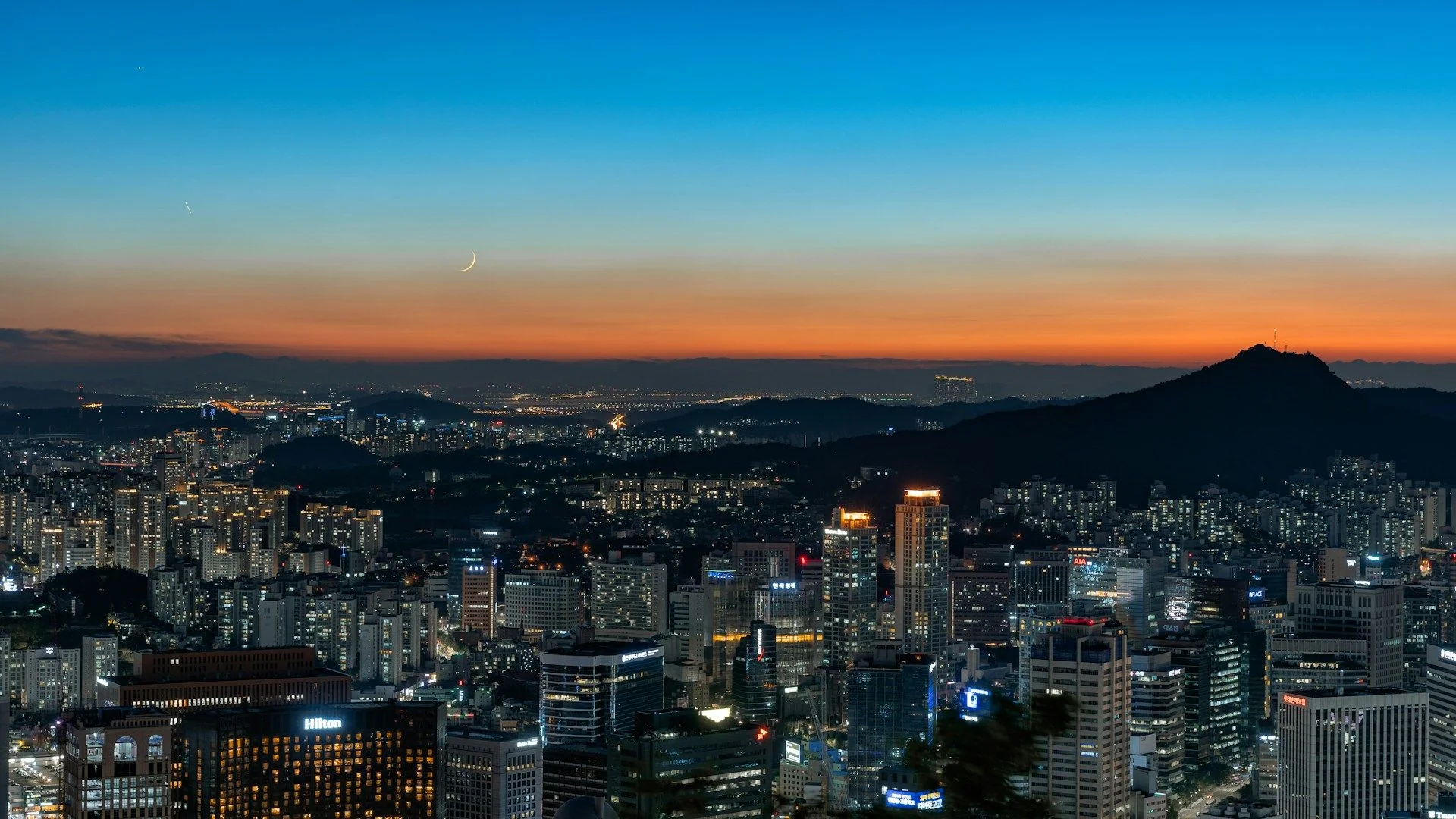Global Investor Opportunities in SeoulHousing in the capitalof tech and culture

Best offers
in Seoul
Benefits of investment in
South Korea real estate
High-tech urban living with property value stability
Major cities like Seoul offer strong infrastructure, public transport, and value retention in real estate.
Fast resale and rental demand in key areas
Districts near universities, business centers, and transit hubs show constant demand from renters and buyers.
Condos with security, amenities, and minimal upkeep
Modern apartments often include doorman service, gyms, and automated systems — ideal for remote owners.
High-tech urban living with property value stability
Major cities like Seoul offer strong infrastructure, public transport, and value retention in real estate.
Fast resale and rental demand in key areas
Districts near universities, business centers, and transit hubs show constant demand from renters and buyers.
Condos with security, amenities, and minimal upkeep
Modern apartments often include doorman service, gyms, and automated systems — ideal for remote owners.

Useful articles
and recommendations from experts
Real Estate in Seoul, South Korea
Why Invest in Seoul’s Property Market
Seoul, the vibrant capital of South Korea, is a global tech, financial, and cultural hub. With its world-class infrastructure, high-quality public services, and thriving economy, the city offers diverse opportunities in real estate investment. As a densely populated metropolis with ongoing urban redevelopment and consistent foreign interest, Seoul’s property market is one of the most competitive and dynamic in Asia. High capital appreciation potential, robust tenant demand, and government-backed development zones attract investors ranging from institutional funds to individual landlords.
Types of Real Estate Available in Seoul
Seoul’s property market is multifaceted and includes:
- High-rise apartments (Apateu) — The dominant residential format, found in neighborhoods like Gangnam, Mapo, and Songpa.
- Villa-style low-rise buildings — Common in areas such as Itaewon and Yeonnam-dong, these offer spacious layouts and unique charm.
- Officetels — Compact mixed-use units functioning as both office and residential spaces, popular among young professionals and investors.
- Commercial buildings — Office towers and retail units, especially in districts like Jongno, Yeouido, and Myeongdong.
- Land parcels — Rare in central Seoul but occasionally available in fringe districts undergoing rezoning or redevelopment.
Can Foreigners Buy Property in Seoul?
Yes, South Korea allows foreign individuals and corporations to purchase real estate with few restrictions:
- Freehold ownership is permitted, including land and buildings.
- Foreign buyers must report purchases to the local government office within 60 days of signing the contract (or register with the Ministry of Land).
- Capital gains and property taxes apply equally to foreign and domestic buyers.
- Foreigners must use Korean won in transactions, and funding must comply with Korea’s foreign exchange regulations.
Property Prices and Market Trends
Seoul is known for its high property prices, particularly in Gangnam and Seocho:
- Apartment in Gangnam (85 m²): KRW 1.5 – 2.5 billion (USD 1.1 – 1.9 million)
- Officetel unit in Yeouido: KRW 300 – 700 million (USD 220,000 – 520,000)
- Commercial unit in Myeongdong: KRW 1.2 – 3 billion (USD 930,000 – 2.3 million)
- Villa in Seongbuk-dong: KRW 1.5 – 4 billion (USD 1.1 – 3.1 million)
Rental Yields and Demand
Rental demand in Seoul is driven by:
- Expats and diplomats in Yongsan, Itaewon, and Hannam-dong.
- University students and young professionals in Mapo, Hongdae, and Gangnam.
- Startups and remote workers seeking officetels in Yeongdeungpo and Sangam.
- Wolse (monthly rent + deposit) — Most common format with a security deposit and monthly rent.
- Jeonse (large deposit only) — Unique Korean format with a 2-year lease and full refundable deposit (often 60–80% of property value).
- Apartment in Mapo-gu: 3% – 4% annual yield (Wolse)
- Officetel in Sangam-dong: 4% – 6% yield
- Villa in Itaewon (expat lease): 3.5% – 5% yield
Best Areas to Invest in Seoul
Top investment districts in Seoul include:
- Gangnam-gu — Luxury apartments, tech offices, and prestigious schools make this the most sought-after location.
- Mapo-gu — Affordable apartments near universities and high rental demand.
- Yongsan-gu — Popular with expats, close to U.S. army base and future redevelopment zones.
- Yeongdeungpo-gu — Business center with officetels, banks, and rapid urban upgrades.
- Songpa-gu — Olympic Park, Lotte World Tower, and high-end condos attract affluent families.
Buying Process and Legal Steps
The typical purchase process includes:
- Choose a licensed real estate agent (Budongsan) familiar with foreign investor procedures.
- Sign a sale contract and pay a deposit (usually 10%).
- Report the transaction to the local district office within 60 days (Foreigners Property Acquisition Act).
- Register the property with the Real Estate Registry and pay acquisition tax (around 3.5%).
- Complete payment and transfer ownership via public notarization.
Taxes and Maintenance Costs
Property-related taxes in Seoul include:
- Acquisition tax: 1.1% – 4.6%, depending on use and price bracket.
- Capital gains tax: 6% – 45% for individuals, higher for multiple properties.
- Property tax: Annual tax of 0.1% – 3.2% depending on ownership scale and property value.
- Rental income tax: 14% – 42% based on net income.
- HOA fees: Typically KRW 100,000 – 300,000/month for apartment buildings.
Who Should Invest in Seoul?
Ideal profiles include:
- Long-term global investors looking for capital appreciation in a stable legal and political environment.
- Landlords seeking rental income from professionals, students, or expats.
- Corporations or funds acquiring office or commercial assets in central districts.
- Retirees and individuals planning lifestyle-based purchases in well-connected, safe neighborhoods.
Conclusion
Seoul’s real estate market combines Asia’s dynamism with legal transparency and infrastructure quality. While prices are high and regulations strict, the capital city remains an attractive destination for conservative investors seeking low-risk returns and long-term capital growth. With diverse property formats, secure ownership rights, and steady tenant demand, Seoul offers one of the most mature and structured real estate environments in East Asia.
